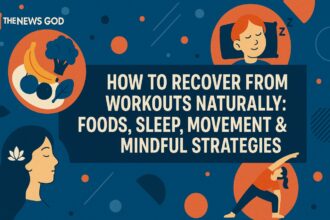In an age where prescriptions and over-the-counter medications play a crucial role in maintaining our health, medication safety becomes a critical aspect of managing our lives. Navigating this world can be tricky, but with the right guidance and knowledge, you can take control of your well-being while minimizing potential risks. Below, we outline a few key strategies to ensure that you can optimize your medication safety and preserve your health.
Understanding Your Medications
The first step in medication safety is understanding the drugs you are taking. This includes knowing the name of each medication, its purpose, dosage, and instructions for use. Familiarizing yourself with your medications goes a long way in avoiding potential mix-ups or overdoses.
If you’re unsure about any aspect of your medication, contact your healthcare provider or pharmacist for clarification. Never hesitate to ask questions and always keep an updated list of your medications on hand. This can help you avoid dangerous interactions or accidental overdoses. When starting a new medication, research its possible side effects, interactions with other drugs, and if there are any foods or activities to avoid while taking it.
It’s just as important to understand any supplements you’re taking as it is to research your prescription or over-the-counter meds. Many assume that, due to their natural qualities, these products are inherently safe. However, to safely reap the benefits of a product like Testodren, a patented formula designed to increase testosterone, it is always good to check with your healthcare provider if it is suitable for you and that it won’t interfere with anything you’re already taking.
Avoiding Counterfeit Medications
Counterfeit medications can pose a significant risk to your health, as they may contain incorrect, ineffective, or even harmful ingredients. When shopping for medications, especially online, it is important to choose a reputable source. You can verify the legitimacy of online pharmacies through the National Association of Boards of Pharmacy or other pharmaceutical regulatory consulting services.
Be cautious of websites offering medications at significantly discounted prices, as these may be red flags for counterfeit products. To ensure that you receive only genuine medications, it’s best to stick with pharmacies that have a physical presence in your community or maintain a reputable online presence with clear contact information and licensing details.
Lastly, always inspect the packaging and physical aspects of your medication. If something seems off or if the pills look different in appearance, contact your healthcare provider or pharmacist for guidance before taking the medication.
Proper Storage and Disposal

Proper storage of your medications is essential in preserving their effectiveness and ensuring that they remain out of reach for children, pets, or others who may misuse them. Keep your medications in a cool, dry place away from direct sunlight or heat. If your medication has specific storage requirements, such as refrigeration, be sure to follow the instructions provided by your pharmacist.
Disposing of expired or unused medications appropriately is another crucial factor in medication safety. Do not flush your medications down the toilet or throw them into the trash without first checking if they require specific disposal methods. Contact your local pharmacy or waste disposal facility for guidance on disposing of medications safely.
Remember that not properly disposing of medications can pose a risk to others, potentially leading to unintended drug exposure or environmental contamination. Always be mindful of the potential consequences of improper disposal, and make an effort to follow the recommended practices.
Altogether, practicing medication safety is vital to ensuring that your medications work well and protect your health. By understanding your medications, storing and disposing of them properly, avoiding counterfeit medications, and staying in touch with your healthcare provider, you can take control of your well-being and minimize potential risks.















